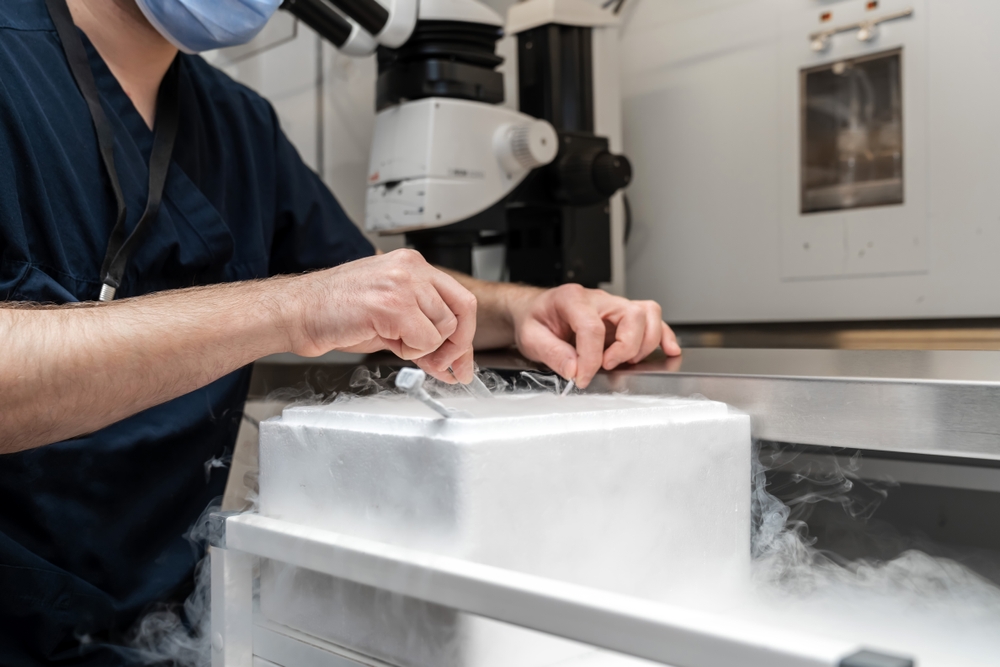In recent years, egg freezing has emerged as a revolutionary fertility preservation technique, offering women the option to extend their reproductive timelines. Whether due to career aspirations, health concerns, or other personal reasons, many women are considering this procedure. However, just because freezing your eggs is an option, it doesn’t necessarily mean it’s the right option for you.
Understanding Egg Freezing
If you are considering freezing your eggs, it’s worth improving your understanding of what the process involves first. Egg freezing, also known as oocyte cryopreservation, is a medical procedure that involves the extraction, freezing, and storage of a woman’s eggs for potential future use. The process typically includes ovarian stimulation, egg retrieval, and freezing. When a woman decides she is ready to use her frozen eggs, they can be thawed, fertilised with sperm through in vitro fertilization (IVF), and then transferred as embryos to the uterus.
The Benefits of Egg Freezing
Preserving Fertility: Most notably, egg freezing allows women to preserve their fertility at a younger age when the eggs are of better quality, reducing the risk of age-related infertility.
Medical Reasons: Some medical conditions and treatments, such as cancer therapies, can compromise fertility. Egg freezing provides an opportunity to protect fertility before undergoing treatments that may affect it.
Career and Personal Goals: Women who want to focus on their careers or other personal goals without the pressure of starting a family can benefit from egg freezing. It offers flexibility and control over their reproductive timeline.
Considerations for Egg Freezing
Age: Egg quality and quantity decline with age, so the optimal time to freeze eggs is typically in the late 20s to early 30s for the best chances of success.
Success Rates: While egg freezing is a promising technology, it’s essential to understand that success rates vary. The number of eggs frozen, as well as their quality can influence the likelihood of a successful pregnancy.
Cost: Egg freezing can be expensive, including the initial procedures, medications, and storage fees. It’s crucial to consider the financial aspect of this process.
Emotional and Ethical Considerations: Egg freezing decisions can come with emotional considerations, including the possibility of future relationships and the ethical questions surrounding unused frozen eggs.
Is Egg Freezing Right for You?
Determining if egg freezing is the right choice for you is a personal decision influenced by various factors. For instance, if you have long-term fertility goals or medical concerns, egg freezing could be a wise choice. Likewise, if your career or other life plans currently take precedence, egg freezing can offer peace of mind and flexibility. However, it’s wise to carefully consider your financial situation as well as your emotional readiness. Nobody can answer the question for you, but it’s wise to understand all of the pros and cons and seek professional advice before you proceed.
Egg freezing is a remarkable advancement in reproductive medicine that provides women with an opportunity to take control of their fertility. Deciding if it’s right for you involves assessing your age, fertility goals, career plans, medical history, and emotional inclination. Consulting with a fertility specialist can provide invaluable insights and guidance to help you make an informed choice. Ultimately, egg freezing can offer peace of mind and the flexibility to pursue your goals while preserving the possibility of future parenthood.
If you want to find out more about the possibility of freezing your eggs, or you’d like to discuss any fertility concerns, please don’t hesitate to contact us at your earliest convenience.

